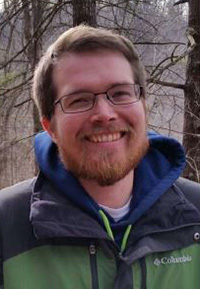
The Entomological Society of America's 2019-2020 elections, conducted via electronic ballot, are open beginning July 22, 2019, at 10 a.m. U.S. Eastern Daylight Time (EDT) and will close August 21, 2019, at 11:59 p.m. U.S. EDT. Below, the candidates for positions within the Society and several ESA Sections and Branches are listed.
Members will also vote on Honorary Members during the election period. Learn more: Honorary Member nominees.
For additional information on voting, see ESA voting instructions. Questions? Contact elections@entsoc.org.
Click below to see 2019-2020 candidates for:
- ESA Society Elections
- Medical, Urban, and Veterinary Entomology (MUVE) Section Elections
- Physiology, Biochemistry, and Toxicology (PBT) Section Elections
- Plant–Insect Ecosystems (P-IE) Section Elections
- Systematics, Evolution, and Biodiversity (SysEB) Section Elections
- International Branch Elections
- Pacific Branch Elections
- Southeastern Branch Elections
ESA Society Elections
 Michelle S. Smith
Michelle S. Smith
Corteva Agriscience
Michelle Smith is leader of the North America Region Integrated Field Science team in Corteva Agriscience Research and Development. Prior to this role, Michelle worked on integration of research and development (R&D) organizations during merger and earlier led a Dow AgroSciences team responsible for early-stage development of traits in corn. She has held other leadership and technical roles, including leading a U.S.-based field science group developing products for the urban pest, turf and ornamentals, and range and pasture markets and leading a global biology team for the Sentricon system.
Michelle has over 20 years of business and R&D experience in pest management, technology transfer, and communications. Michelle received her B.A. from Hollins University and her Master's in entomology from Virginia Polytechnic Institute and State University. She is a Board Certified Entomologist and has served ESA in numerous capacities including currently serving as Treasurer. Michelle has served ESA through the Education and Youth Committee, North Central Branch Honorary Awards Committee, Stan Beck Fellowship panel, and Science Policy Capability Committee as well as Medical, Urban, and Veterinary Entomology Section Treasurer and co-organizer of member symposia and a program symposium on diversity in entomology.
Michelle engages in outreach as a Corteva Agriscience Science Ambassador for science programs directed to children and is active in the Corteva Grows Food Security network. Michelle is an advocate for encouragement of women in the fields of agriculture and entomology and was a driving force behind formation of the ESA Special Committee on Diversity & Inclusion.
VP-Elect Candidate Statement:
I have enthusiastically invested in ESA in different roles over time and strongly believe that the challenges I describe below are indeed opportunities. ESA is for all entomologists—students, technicians, practitioners, hobbyists, research directors, or eminent professors; each entomologist brings something unique and valuable to our society. Cultivating these contributions to benefit an inclusive ESA will be my great privilege if I am elected.
The Strategic Principles of ESA are strong guideposts for steering our society forward. Within these principles there also lies significant opportunity to shape our future. Accelerating progress can extend our leadership among peer societies as an organization that anticipates important challenges. Being first to lead will empower ESA membership to profoundly influence the environment within our science and external to it.
There are many challenges entomologists face today in science policy and funding, climate change, invasive species, political volatility, shrinking university departments, and industry consolidation. Science policy, communication, and innovation initiatives must be sustained to address these challenges. Within ESA we have reexamined our governance structure with a goal to increase agility and responsiveness to our members, analyzed member views on volunteerism, and asked ourselves tough questions about paradigms and how we recruit and develop new ESA leaders, all initiatives I support. I realize at the same time that investing in growth must be balanced with good fiscal stewardship and with maintaining impact in our core responsibilities of providing first-class venues for publications, recognition, and sharing insect science globally.
- Rayda K. Krell, Western Connecticut State University
- Faith Oi, University of Florida
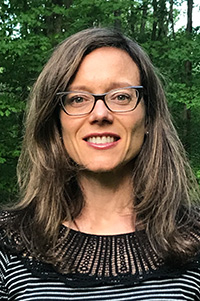 Rayda K. Krell
Rayda K. Krell
Western Connecticut State University
Rayda is an Assistant Professor at Western Connecticut State University where she teaches a scientific communication class and works on tick research. Rayda is honored to be nominated to serve as ESA Treasurer.
Rayda is a member of both the Plant-Insect Ecosystems and Medical, Urban, and Veterinary Entomology Sections, which reflects her diverse entomological experiences. Rayda received her M.S. and Ph.D. degrees in entomology at Iowa State University, where she worked on precision agriculture to manage soybean pests and developed a management approach for a beetle-transmitted soybean virus. Her post-doctoral research was at the University of California-Riverside, working with management of a bacterial grape pathogen transmitted by sharpshooters. In her current research, she works on a CDC-funded project to evaluate integrated tick management in residential environments, among other tick research.
Rayda has served ESA in many capacities since she first joined in 1997 and has attended every ESA Annual Meeting since 1997, except for one that coincided with a cross-country move and the birth of one of her sons. Rayda has held the following roles ESA roles: North Central Branch Student Affairs Committee member (2002), Membership Committee chair (2005), Vectors of Plant Pathogens subsection chair (2007), Annual Meeting Local Arrangements Committee co-chair (2007), Science Policy Fellow (2014‒2016, in the program's first class), co-organizer of the first P-IE Science Policy Field Tour (2016), Entomological Foundation Board of Directors member (2013‒2017), Annual Meeting Student Competition co-chair (2018), Annual Meeting Program co-chair (2019), and co-organizer for the Women in Entomology breakfast (2010‒present).
 Faith Oi
Faith Oi
University of Florida
Faith Oi, Ph.D., is an urban entomologist in the Entomology and Nematology Department at the University of Florida (UF). She has actively and continually served the Entomological Society of America at the branch, section, and national levels since 1995. Leadership capacities include two terms on the ESA finance committee (2008-2014); Medical, Urban and Veterinary Entomology (MUVE) Section president (2015), which also included participation in the program planning committee; and Southeastern Branch nominations chair (2016). She currently chairs ESA's Diversity and Inclusion Committee and is MUVE's representative on this committee. Her service on the D&I Committee began as an ESA presidential appointee during the founding period of this committee (2015-2017). She then rotated to section representative (2017-2018).
As an urban entomologist at UF, she is the Director of Pest Management University (2007-present), whose mission is to be a world leader in training the pest control industry by delivering quality instruction using science-based information on current technologies, with concern for the environment and human health and well-being. This Extension-led program continues to grow because of a team of experts with similar core values. Experts include business consultants who provide guidance on how to sustain this cost-recovery program to ensure continual service to stakeholders. Oi also has completed LEAD21 and LEAD IFAS training and is a recipient of the PCT-Syngenta Crown Leadership Award, Class of 2018. Additional service to ESA: SEB-ESA Program Chair (2008), SEB-ESA Student Awards Committee (1995-1998, chair 1997-1998).
MUVE Elections
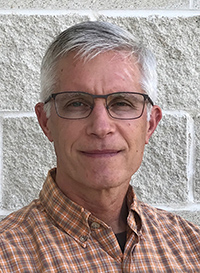 Edward Vargo
Edward Vargo
Texas A&M University
Dr. Ed Vargo received his B.S. in biology from Maharishi International University in Fairfield, Iowa, and his Ph.D. in entomology from the University of Georgia. Dr. Vargo received postdoctoral training at the University of Texas at Austin and at Université Paul-Sabatier in Toulouse, France. He is currently Professor and Endowed Chair in Urban and Structural Entomology at Texas A&M University. Previously, Dr. Vargo was Professor of Entomology at North Carolina State University, where he also served as Interim Department Head in 2013-2014.
His internationally recognized research program applies techniques of molecular ecology and population genomics to address basic and applied questions in urban entomology. His contributions include advancing our understanding of colony breeding structure in subterranean termites and invasive ants, the foraging dynamics of subterranean termite colonies and their fate after insecticide treatments, and the dispersal and population genetics of bed bugs and cockroaches. He also investigates the spread and invasion success of pest ants and termites.
Dr. Vargo has published 135 scientific articles on urban pests and has given more than 250 talks at professional meetings. He was awarded the 2006 Entomological Foundation Recognition Award in Urban Entomology and the 2015 Crown Leadership Award from Syngenta and PCT Media Group. Dr. Vargo has been a member of ESA since 1980. He served as Associate Editor for Environmental Entomology from 1997 to 2002, he was the MUVE representative for USDA-AFRI Student Travel Grant awards in 2014, and he has served several times as a judge for MUVE student presentations.
 Mustapha Debboun
Mustapha Debboun
Mosquito & Vector Control Division, Harris County Public Health
Colonel (Ret.) Dr. Mustapha Debboun is a medical and veterinary entomologist who is currently the Director of the Mosquito and Vector Control Division in Harris County Public Health in Houston, Texas. He earned his B.A. in cellular and molecular biology from Skidmore College, M.S. in medical entomology from the University of New Hampshire, and Ph.D. in medical and veterinary entomology from the University of Missouri-Columbia. He has worked in military public health entomology, vector-borne diseases, IPM operations, and research and development of arthropod repellents. This work has taken him to 35 countries in Africa, Asia, Australia, Europe, and South America. His main goal is integration of medical entomology with other operational public health fields to provide efficient and sustainable management of disease vectors and personal protection from the vector-borne disease threat.
He is currently serving as ESA's Science Representative to the Vector-Borne Disease Network and as MUVE Vector Emergency Response Entomologists Initiative Lead and has previously served as MUVE Section President and Vice-President, Director on the ESA Certification Board, Chair of the Journal of Medical Entomology Editorial Board, Chair of ESA's International Affairs Committee, and an ad hoc ESA BCE Military Liaison to promote ESA's Certification Program within the Armed Forces. He has authored or co-authored over 110 peer-reviewed publications and three books. He also organizes ESA symposia, serves on eight journal editorial review boards, and is a reviewer for six peer-reviewed journals. His professional ESA Awards include the Distinguished Service Award to the ESA Certification Program and ESA Fellow.
PBT Elections
- Troy D. Anderson, University of Nebraska-Lincoln
- Immo A. Hansen, New Mexico State University
- Amit Sethi, Corteva Agriscience
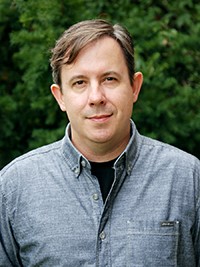 Troy D. Anderson
Troy D. Anderson
University of Nebraska-Lincoln
Dr. Troy Anderson received his B.S. and M.S. degrees in biological sciences at Wichita State University, a Ph.D. degree in entomology from Kansas State University, and a Post-Doctoral Fellowship in Entomology at Virginia Tech. Currently an Associate Professor of insect physiology at the University of Nebraska, Troy leads a research and teaching program focused on the broader aspects of physiology that integrates pharmacological, biochemical, and genomic approaches to address fundamental questions about model insects, disease-transmitting arthropods, and agriculture or urban pests.
Troy is a long-time member of the Physiology, Biochemistry, and Toxicology Section of the Entomological Society of America, where he is an active judge, organizer, and moderator for symposia and award competitions. He has leadership experience serving as an elected member of the Executive, Planning, Development, and Early Career Scientists Committees for the American Chemical Society Division of Agrochemicals. Troy is a Co-Chair for the INSecticide TARgets (INSTAR) Summit Liaison Group of Entomological Society of America and American Chemical Society.
He serves as a Subject Editor for Journal of Economic Entomology, Editorial Board Member of Arthropod Management Tests, Associate Editor for Pest Management Science, and a Guest Editor for Pesticide Biochemistry and Physiology. He has 53 publications and 200 scientific, extension, and instructional conference and workshop communications related to the modes of action, discovery and development, resistance monitoring and management, and safety and regulation of chemistries for the management of disease-transmitting arthropods and protection of beneficial insects.
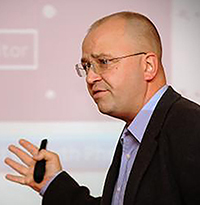 Immo A. Hansen
Immo A. Hansen
New Mexico State University
Dr. Immo A. Hansen is an associate professor of biology at New Mexico State University. He received his Ph.D. in biology from the University of Würzburg in 2001, where he worked on larval storage proteins in the blowfly Calliphora vicina (Robineau-Desvoidy) and neuropeptides in the greater wax moth Galleria mellonella (Linnaeus). After postdocs at the university hospital in Würzburg, the Raikhel Lab at the University of California, Riverside, and the University of Konstanz, during which he worked on a variety of model systems, he joined the faculty of the Department of Biology at New Mexico State University in 2008.
His international research team does cutting-edge applied and basic research in molecular biology, molecular physiology, signal transduction, and cell biology of disease-transmitting mosquitoes and other blood-sucking arthropods. Major projects of the Molecular Vector Physiology Lab are focused on the molecular mechanisms of nutrient, ion, and water transport in the yellowfever mosquito Aedes aegypti (Linnaeus), mosquito repellents, and the implementation of sterile-insect technique with this and other species of insects.
He has numerous collaborations with groups in the pest control industry and academia. He was an organizer for the Tsetse genome project and is currently an academic editor for Insect Molecular Biology, PLOS ONE, and Scientific Reports. Immo has been an ESA member since 2002. He and his lab members are regular contributors to the annual ESA meetings, and he has been a co-organizer of various symposia, including the now-legendary 2012 fat body symposium.
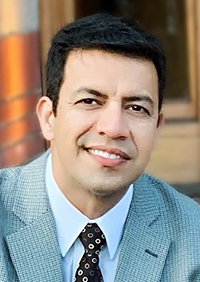 Amit Sethi
Amit Sethi
Corteva Agriscience
Dr. Amit Sethi, Global Biology Leader at Corteva Agriscience, is responsible for delivering knowledge and strategy related to insect resistance and durability to internal and external stakeholders globally that aid in product characterization, development, registration, launch, and support. Amit holds a B.S. degree in agriculture (Hons. In Plant Protection) and an M.S. degree in entomology from Punjab Agricultural University (India), an M.B.A. in operations management from the Indira Gandhi National Open University, a Ph.D. in entomology from the University of Florida, and post-doctoral experience from Louisiana State University and Purdue University.
Amit has demonstrated consistent leadership within entomology and ESA. Amit received the 2008 John Henry Comstock Graduate Student Award. He served in several leadership roles at department and university level during graduate studies. He was elected mayor of his graduate student housing, and his concern for the welfare of the graduate student community inspired him to establish a butterfly garden on the grounds of graduate housing for the enjoyment of the residents. Amit has contributed to ESA through service (volunteering at registration and presentation preview, judging and moderating sessions, serving on Membership Committee for the Southeastern Branch and Student Awards Committee for the North Central Branch), involvement in the Linnaean Games, and publications in ESA journals. Amit has organized 12 symposia at ESA meetings. Amit served as Program Chair for the 2015 North Central Branch meeting. Amit currently chairs the Industry Advisory Board for the Center for Arthropod Management Technologies, a National Science Foundation Industry/University Cooperative Research Center.
- Adekunle W. Adesanya, Washington State University
- Scott O'Neal, University of Nebraska-Lincoln
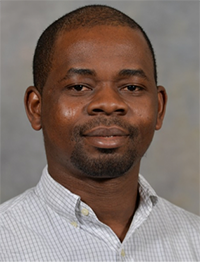 Adekunle W. Adesanya
Adekunle W. Adesanya
Washington State University
Adekunle W. Adesanya (aka Kunle) is a postdoctoral research fellow at the Department of Entomology at Washington State University. His research focus is on characterizing the molecular mechanisms of host-plant and pesticide resistance in populations of two-spotted spidermites from multiple cropping systems such as hop, alfalfa, peppermint, and strawberry, using toxicological, biochemical, and bioinformatics approaches.
Kunle is also involved in extension service to multiple stakeholder groups in the Pacific Northwest in the United States. Kunle has been actively involved in ESA activities since 2014. He has participated in Linnaean Games and student debates and also has helped organize program symposia and student debates at ESA national meetings.
At WSU, he also collaborated with his peers to organize university-wide events such as the Research Expo, a plant science symposium, and others. Kunle has also represented the ESA Pacific Branch on the ESA Student Affairs Committee from 2017-2018. Kunle is a multi-award winner both in ESA and WSU: He recently received the WSU graduate school/GPSA Excellent Graduate Research Assistant of the Year for 2018 and also won the ESA John Henry Comstock Graduate Student Award. If elected as the ECP representative on ESA PP|BT board, Kunle plans to promote active participation of ESA ECP members in all PBT activities and program.
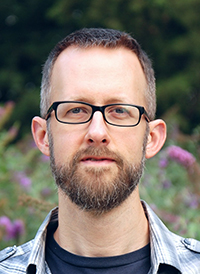 Scott O'Neal
Scott O'Neal
University of Nebraska-Lincoln
Dr. Scott O'Neal earned his Ph.D. in entomology from Virginia Tech in 2017, having previously earned a M.S. in forensic science from Virginia Commonwealth University and a B.S. in genetics and microbiology from Purdue University. He was awarded a USDA-NIFA Predoctoral Fellowship to support his graduate research, which investigated ion channel-mediated regulation of honey bee cardiac function and antiviral immunity. Scott currently studies insect physiology and toxicology as a Postdoctoral Research Associate at the University of Nebraska-Lincoln and was recently awarded a USDA-NIFA Postdoctoral Fellowship to continue his research related to honey bee antiviral immunity.
Scott has been an active member of the PBT Section and ESA as a whole, having been elected to serve as Vice Chair of the ESA Early Career Professionals Committee in addition to sitting on the governing council of the PBT Section. At the 2018 ESA Annual Meeting in Vancouver, British Columbia, Scott was the lead organizer of a program symposium exploring the relationship between entomology and One Health, as well as the popular PBT "speed networking" event that gave student and early career members the chance to interact with more senior members in a fun alternative to traditional networking events.
Scott has been awarded the ESA North Central Branch 2018 Excellence in Early Career Award, the University of Nebraska 2018 Outstanding Postdoctoral Scholar Award, and was also selected as a finalist for the American Chemical Society's Agrochemical Division 2018 New Investigator Award.
P-IE Elections
- Surendra Dara, University of California Division of Agriculture and Natural Resources
- Rebecca Schmidt-Jeffris, USDA-ARS, Temperate Tree Fruit and Vegetable Research Unit
 Surendra Dara
Surendra Dara
University of California Division of Agriculture and Natural Resources
Surendra Dara is the Entomology and Biologicals Advisor with University of California Cooperative Extension serving San Luis Obispo and Santa Barbara Counties. He has a Ph.D. in entomology from Virginia Tech and a post-graduate diploma in Applied Information Technology from Canada.
He is an entomologist with nearly 25 years of experience in IPM and microbial control. He has worked on 17 species of invasive pests and diseases and several endemic species throughout his career. He has published more than 340 scientific and extension articles that include three co-edited books, one co-edited special issue of a journal, 13 book chapters, and 50 peer-reviewed journal articles. He has a strong research and extension program that develops innovative solutions for sustainable crop production and protection, and he reaches out to the agricultural community locally, regionally, and internationally. He provided farmer training in pest management, IPM, and crop production through volunteering in Bangladesh, Haiti, Kosovo, Moldova, and Myanmar and to visitors from Bosnia and Herzegovina, Bulgaria, and Colombia.
He is currently serving on various committees at the University of California, the Society for Invertebrate Pathology, the Entomological Society of America, and the Association of Applied IPM Ecologists. He is also an Associate Editor for the International Journal of Tropical Insect Science and a Subject Editor for the Journal of Economic Entomology. Dara was recently featured as a Western Innovator by Capital Press for his work in biologicals and recently received the ESA Pacific Branch Award for Excellence in Extension.
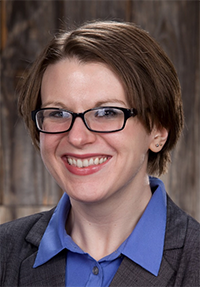 Rebecca Schmidt-Jeffris
Rebecca Schmidt-Jeffris
USDA-ARS, Temperate Tree Fruit and Vegetable Research Unit
Dr. Rebecca Schmidt-Jeffris has been an ESA member since 2010. She is currently a Research Entomologist for USDA-ARS in Wapato, Washington; her position focuses on biological control in tree fruit. Rebecca received her Ph.D. in 2015 from Washington State University, where she investigated biological control of mites in apples. Her postdoctoral research at Cornell University examined the landscape ecology and management of European corn borer.
Rebecca became involved in ESA leadership early in her career and has always enjoyed serving Society members. Her leadership roles within ESA have included the ESA Student Affairs Committee (2013-2015, chair in 2015), student liaison to the national Program Committee (2015), ICE SAC United States co-Chair (2014-2016), Early Career Professionals Committee (2015-2017), Publications Task Force (2018), and Southeastern Branch Program chair (2018). Rebecca has organized nine symposia, three workshops, and four Student Debate competitions. The society has recognized her effective leadership and scholarship with the national Student Activity and Early Career Professional Extension awards and the Pacific Branch Comstock and Student Leadership awards. She is currently finishing her three-year term as P-IE Governing Council secretary.
Rebecca is eager to continue serving our P-IE members in the role of VP-Elect. In particular, she wants to create new opportunities for more members to get involved in section activities, regardless of career stage or previous involvement. She is excited to implement ideas from the membership to increase section inclusiveness and relevance in response to changing member needs.
- Desmi Chandrasena, Corteva Agriscience
- Anjel Helms, Texas A&M University
- Rob Morrison, USDA-ARS Center for Grain and Animal Health Research
 Desmi Chandrasena
Desmi Chandrasena
Corteva Agriscience
Dr. Desmi Chandrasena has over six years of industry experience in a global research and development role as a scientist with entomological and plant genetics expertise in regulatory sciences. She completed her M.S. and Ph.D. at Michigan State University in entomology and plant breeding, respectively. Dr. Chandrasena combined her entomology and plant-breeding/molecular-genetics backgrounds to focus on field-plot techniques, marker-assisted breeding and quantitative trait-loci mapping to integrate host-plant resistance and insecticide resistance for soybean pests.
She has more than 12 years of experience working with cotton and soybean entomologists in academia. At Dow AgroSciences, she was responsible for ensuring timely execution of global regulatory studies for insect resistance traits and led regulatory studies adhering to U.S. and global regulatory requirements. She manages academic relationships with entomologists around the world to generate regulatory data.
Desmi has completed several leadership certifications through the Cornell University Graduate School of Management. In addition, she serves on the Corteva Agriscience education and outreach team, working to engage students and the public in entomological sciences. Since 2008, she has presented at eight ESA meetings and has published five peer-reviewed journal articles on entomology topics and is looking forward to being more engaged in the Society in the future.
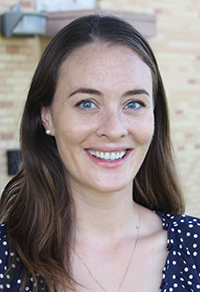 Anjel Helms
Anjel Helms
Texas A&M University
Dr. Anjel Helms is an assistant professor of chemical ecology in the Department of Entomology at Texas A&M University. She received bachelor's degrees in biology and biochemistry from Pepperdine University. Prior to her graduate training, she spent a year as a Fulbright Scholar at the Max Planck Institute for Chemical Ecology in Germany, performing chemical and molecular analyses of transgenic spruce trees to investigate defensive traits against bark beetles. She completed a Ph.D. in ecology from Penn State University, where her dissertation research examined the role of insect pheromones in enhancing plant anti-herbivore defenses.
She was a USDA NIFA Postdoctoral Fellow in the Penn State Entomology Department, investigating plant and insect responses to chemical cues from entomopathogenic nematodes (EPN). At Texas A&M, her lab is expanding on this research to investigate the chemical ecology of below-ground interactions involving EPN, plants, insect herbivores, and plant-associated microbes. Some of her current research interests include chemical communication, plant and insect defense strategies, multi-trophic interactions, and belowground chemical ecology. Anjel has been a member of ESA and the P-IE section since attending her first ESA meeting in 2012.
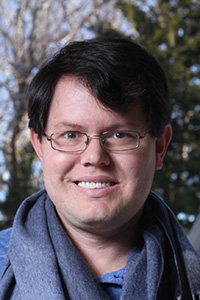 Rob Morrison
Rob Morrison
USDA-ARS Center for Grain and Animal Health Research
Dr. Rob Morrison is a Research Entomologist for the USDA-ARS Center for Grain and Animal Health Research in Manhattan, Kansas, where his research investigates the chemical ecology, behavioral ecology, and IPM of stored product insects with the goal of developing sustainable management programs.
He graduated with his B.A. in biology from Kalamazoo College in 2006. Afterward, he received his M.S. in ecology, evolution, and systematics from the University of Munich in Germany. In 2014, Rob received his Ph.D. in entomology at Michigan State University. His doctoral work primarily focused on developing an integrated pest management program for the asparagus miner. From 2014 to 2016, Rob was a post-doctoral researcher at the USDA-ARS Appalachian Fruit Research Station, where he investigated the chemical ecology, biological control, and IPM of the invasive brown marmorated stink bug, including attract-and-kill.
Rob has been highly active in ESA for the past nine years and has served on 25+ committees at the branch, section, and national level. He has organized 30+ symposia at ESA meetings, has regularly acted as a judge for graduate paper competitions, and frequently publishes in ESA journals. Rob served as the 2017–2018 Chair of ESA's Early Career Professionals Committee and is currently the North Central Branch Chair of the Local Arrangements Committee for the 2020 NCB Meeting. He is committed to including voices of all members in ESA's decision-making processes, including underrepresented groups and ECPs. He is excited for the opportunity to help make P-IE as forward-looking and inclusive as possible.
- Flor Acevedo, Colombian Center for Coffee Research, Cenicafé
- Angela M. Coco, The Pennsylvania State University
- Ian Grettenberger, University of California Davis Nicholas Larson USDA-ARS
- Navneet Kaur, University of Idaho
- Nicholas Larson, USDA-ARS
- Anthony Justin McMechan, University of Nebraska-Lincoln
- Tolulope Morawo, Auburn University
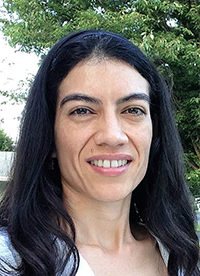 Flor Acevedo
Flor Acevedo
Colombian Center for Coffee Research, Cenicafé
Dr. Flor Acevedo is a research associate at the Colombian Center for Coffee Research (Cenicafé), where she studies genetic, behavioral, and physiological aspects of insect pests of coffee. She received her bachelor's degree in agronomy from Universidad de Caldas (Colombia) and her Ph.D. in entomology from Pennsylvania State University. Her dissertation research focused on the study of plant defense responses induced by insect herbivores and counter-insect adaptation mechanisms, using fall armyworm (Spodoptera frugiperda) as a model system. The results of this work highlight the importance of insect physiological, morphological, and behavioral plasticity as key factors that enable the utilization of different host plants.
Her research centers on understanding underlying mechanisms mediating plant-insect interactions with the goal of enhancing host plant resistance. She uses an interdisciplinary research approach combining chemical ecology with molecular biology, ecology, and behavior to elucidate important factors and identify associated organisms involved in interactions between insects and plants. She has made scientific research contributions to the fields of insect plant interactions, integrated pest management, insect biological control, and general biology of insects. Dr. Acevedo likes being part of educational activities. She also enjoys mentoring students and loves to provide professional development training to people interested in science.
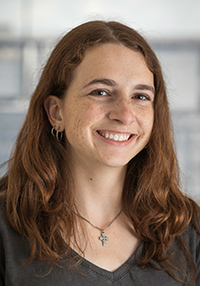 Angela M. Coco
Angela M. Coco
Pennsylvania State University
Angela Marie Coco, an enthusiastic young scientist who holds a B.S. degree in environmental science from King's College (Pennsylvania) and an M.S. degree in entomology from Pennsylvania State University, is passionate about insect ecology and ecosystem health. She has previous training in aquatic ecology, where she investigated invasive species, midge phoresy, mercury bioaccumulation, biological indicators, and trophic interactions. For her REU project at the Hubbard Brook Experimental Forest (New Hampshire), Angela investigated how both canopy cover and trout predation influenced the macroinvertebrate community in two streams. Angela's masters' project focused on agroecology and IPM, where she researched the effects of polyculture phylogeny on the insect community. Additionally, she updated information on parasites and parasitoids of Acalymma vittatum, which hasn't been described in a major publication since Balduf 1925.
When not working, she spends time photographing live insects, hiking, training in martial arts, ice skating, and creating art. For several years Angela has also dedicated much of her time to service and outreach. She was awarded service honors for completing over 400 volunteer hours while attending King's College. Before starting her entomology program, Angela also served with AmeriCorps for several months in Vermont and California. While at Penn State, she continued to participate in outreach programs with entomological and ecological themes, and was even the Aquatics Day Leader (twice) for the department's week-long Bug Camp. Having just graduated, Angela is currently in transition to finding a wonderful career and is eager to become more involved with ESA.
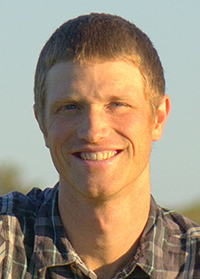 Ian Grettenberger
Ian Grettenberger
University of California Davis Nicholas Larson USDA-ARS
Ian Grettenberger is a field and vegetable crops assistant specialist in the Department of Entomology and Nematology at the University of California, Davis.
Grettenberger is interested in advancing integrated pest management in field and vegetable crops, plant-insect interactions, and applied insect ecology.
He earned a doctorate degree in entomology from Penn State University.
 Navneet Kaur
Navneet Kaur
University of Idaho
My research has largely focused on the development and implementation of integrated pest management (IPM) in diverse cropping systems (warm-season turfgrass, cool-season grass seed crops, and potatoes). I received my Ph.D. in entomology from the University of Florida (August 2010-December 2013), developing cultural control for southern chinch bug management in turfgrasses. During my postdoctoral studies on an ergot IPM project at Oregon State University (April 2014-March 2017), I identified cultivars with ergot disease escape potential; tested new chemical and microbial products to reduce pathogen inoculum; contributed toward the prediction-model development; and delivered a decision-making tool, the "Ergot Alert" newsletter, to grass-seed growers of the Columbia Basin of Oregon.
My postdoc studies at the University of Idaho (April 2017-present) are focused on the biology and ecology of potato psyllid, a vector of zebra chip disease of potatoes. I authored and co-authored peer-reviewed research articles (9) and scientific abstracts (6). I have been an active member of ESA since 2011. My involvement in the Society and leadership instances include: competing on Linnaean Game teams at Southeastern Branch as well as national meetings, judging student paper/poster competitions whenever asked, and participating in oral and poster sessions to present my research findings. I have been a reviewer to all main entomological journals. I have organized and moderated a symposium program during the Pacific Branch meeting. I seek the role of P-IE representative on the Early Career Professional Committee to volunteer, provide leadership in early professionals' development prospects, and advance networking.
Dr. Nicholas Larson currently holds a joint appointment as a Research Associate/Postdoc between Towson University and the USDA Invasive Insect Biocontrol and Behavior Lab in Beltsville, Maryland. His current work involves toxicological analysis of naturally occurring compounds on agricultural and human pests. He received his Ph.D. in entomology from Virginia Tech in 2017, where his work focused on the manipulation of honey bee foraging behavior through the utilization of repellent chemistries. Nicholas received his B.S. in biology from the University of Central Florida and his M.S. in entomology from the University of Florida.
He joined ESA in 2016 and has actively been serving on several committees whose goals are to promote Early Career Professionals. He served as chair of the recently created Eastern Branch Early Career Professionals Committee where he co-organized a symposium and networking event that highlighted ECPs and non-academic-track Eastern Branch members. He has additionally been serving as the P-IE Representative to the Early Career Professionals Committee at the ESA national level. In this position, he assisted in co-organizing a program symposium at the 2018 Vancouver meeting and in assisting with the Invasive Species Tour that P-IE hosted the same year. He currently has plans to co-organize several workshop webinars designed to help ECPs better navigate the academic job market. He looks forward to continuing to serve ECPs and ESA by making the most relevant programming available to its members.
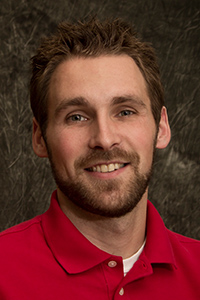 Anthony Justin McMechan
Anthony Justin McMechan
University of Nebraska-Lincoln
Dr. Anthony "Justin" McMechan is a crop protection and cropping systems specialist with the University of Nebraska – Lincoln (UNL) at the Eastern Nebraska Research and Extension Center near Ithaca, Nebraska. In 2016, Justin graduated with a Ph.D. in entomology and a Doctor of Plant Health degree from the UNL. Both of these degrees involved multidisciplinary research, and he has made this a fundamental part of his program at UNL. His lab is focused on estimating the impact of pest and beneficial insects in cover crop systems, evaluating hail damage in row crops, and understanding emerging problems such as ear development issues in corn as well as a new insect pest, the soybean gall midge. Through these projects, Justin has developed strong collaborations with a number of different institutions and industries across the Midwest.
Translating these research findings is an important component of Justin's program. To do this, the lab utilizes a wide range of innovative technologies such as infographics, time-lapse photography, and Go-Pro cameras to develop standalone products to reach his clientele and limit the technical jargon that comes with research. Dr. McMechan has served as moderator and judge at numerous regional and national ESA meetings, has co-organized symposia, and is a current member of the ESA Professional Awards Committee. If elected as the Early Career Professional representative to the P-IE Governing Council, Justin would actively engage the Council on ways to increase ECP member participation in P-IE and ensure that the needs of ECP P-IE members are represented.
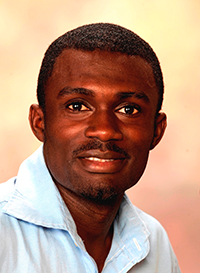 Tolulope Morawo
Tolulope Morawo
Auburn University
Tolulope Morawo is currently a Postdoctoral Fellow in the Department of Entomology and Plant Pathology at Auburn University, Auburn, Alabama. Tolulope received his Master's (2013) and doctoral (2017) degrees in entomology from Auburn. He has been a member of ESA and the P-IE section since 2012. Tolulope joined the Fadamiro lab at Auburn in 2011 as a graduate research assistant, focusing on the behavioral responses and mechanisms of olfaction in parasitic wasps.
Dr. Morawo's research interests are broadly in plant-insect interactions, insect behavior, chemical ecology, neurobiology, and integrated pest management (IPM). So far, he has conducted important studies on tritrophic interactions, defensive chemical ecology, and mechanisms of parasitoid response to complex odorants using the parasitoids Microplitis croceipes and Cotesia marginiventris as study species. Tolulope's research has yielded 14 refereed journal publications and over 21 research presentations. During his graduate program, he won several awards, including the Friends of Southern IPM award (Ph.D. category) and four presentation awards at the branch and national meetings of ESA.
Further, Dr. Morawo has served in various leadership roles at Auburn University and at ESA. At Auburn, he was Vice President of the Graduate Students Council and President of the F.S. Arant Entomology Club. At the Southeastern Branch of ESA, he was a student volunteer, symposium organizer and Chair of Linnaean Games sub-committee. Tolulope is currently a member of the Early Career Professionals committee at the Southeastern Branch of ESA.
SysEB Elections
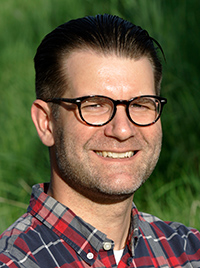 Christopher Hamilton
Christopher Hamilton
University of Idaho
I consider myself an evolutionary biologist, but I'm also an arachnologist, lepidopterist, treethinker, Chickasaw, Gooner, and dad. I haven't always been a biologist, though. In my previous career, I was a photojournalist working for magazines and newspapers. Driven by my passion to tell stories, this work took me around the world, into many different cultural and societal settings. Although I left this career, I continue to tell stories about our planet, only now I do this with genomics, morphology, ecology, and statistics.
As part of the new Arthropod Molecular Systematics Lab at the University of Idaho, my research takes a modern systematics approach to establish hypotheses about the generation and maintenance of biodiversity. By integrating large amounts of phylogenomic, morphometric, ecological, and behavioral data, I try to explain patterns across differing landscapes and time, as well as how biotic and abiotic factors have influenced spider and moth diversification. I take great pride in discovering and describing new diversity. I am also beginning to use machine learning to help inform and accelerate this process, particularly in natural history collections. But perhaps my most important task is to try and interest other young indigenous students in biology and evolution.
As vice president of the SysEB Section of ESA, I would continue to encourage the expansion of entomology into STEM outreach, and, with the rapidly dwindling number of taxonomists, I feel it is imperative to stimulate and train the next generation of young systematists how to discover, document, and describe biodiversity.
- Silas Bossert, Cornell University
- Sandra Schachat, Stanford University
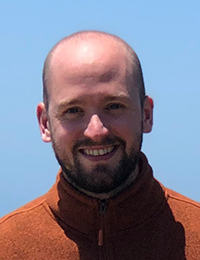 Silas Bossert
Silas Bossert
Cornell University
I study the natural history of bees and wasps as a Ph.D. student in the Department of Entomology at Cornell University and as a predoctoral fellow at the Smithsonian Natural History Museum. My research includes methodological studies on bioinformatics of phylogenomics and empirical research on several lineages of bees. Part of my thesis research comprises the reconstruction of the evolutionary history of the large sweat bee subfamily Nomiinae and its unusual biogeographic distribution.
I grew up in Germany and started collecting insects during my undergraduate years. I hold a Master's degree in zoology from the University of Vienna, where I worked on the phylogeny and ecology of a complex of cryptic bumblebee species. Alpine bumblebees are a fascinating study system!
As student representative, I will ensure that the students' voice gets heard by the Governing Council. I will work hard to gather and communicate the different opinions and perspectives that the diverse student body of the ESA SysEB Section has to offer. Ultimately, I think that communication is key to make our Society a more inclusive and better organization.
 Sandra Schachat
Sandra Schachat
Stanford University
I am proud to have advocated for students since I became the SysEB Student Representative in 2017. While serving in this position I have translated SysEB's latest award announcement into Spanish and I have conducted outreach to traditionally underserved groups, I have urged ESA to recognize the Native community through Territorial Acknowledgements, I have disseminated information about student awards through ESA's Entomology Today blog, I have communicated the concerns of current and prospective SysEB student members to ESA leadership, and I have laid the groundwork to conduct a climate survey that will address the under-representation of various demographic groups in ESA.
My overarching goal as SysEB Student Representative has been to erase barriers to equal participation in ESA and in the entomological profession more broadly. At my university I serve on the Callisto Awareness Committee. I hope to use the knowledge that I gain from this experience to encourage ESA to take a more proactive approach to equal opportunity.
My priorities in 2019-2021 will include addressing financial barriers to student participation in entomology (including attending conferences and conducting undergraduate research), creating opportunities for students to participate in the peer-review process, and increasing transparency about recruitment and retention to ESA.
- Phillip Barden, New Jersey Institute of Technology
- Paul B. Frandsen, Brigham Young University
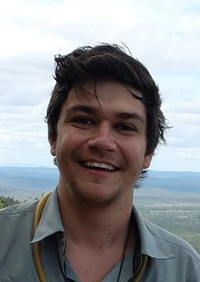 Phillip Barden
Phillip Barden
New Jersey Institute of Technology
I am an assistant professor at the New Jersey Institute of Technology and a research associate at the American Museum of Natural History who uses the fossil record to tackle evolutionary and ecological questions in social insects. Next year marks my 10th year as a member of ESA, a society that has enriched my career in many ways. As a student, postdoc, and now faculty member, ESA has broadened my understanding of entomology and connected me with new colleagues as well as friends. Importantly, the society provides a key platform for disseminating our science, including through publication outlets I am proud to contribute to.
At the same time, offering the best possible Society journals remains a perpetual goal as we work to better cater to a membership that is ever changing, as is our field. I am currently on the editorial boards of the Journal of Insect Science and PLOS ONE and have reviewed for, and published in, a total of 26 journals.
If elected, I hope to bring what I've learned at each level of the publication process to help set ambitious and achievable goals for ESA's journals. More important than my own experience, though, I want to hear from membership to make sure we continue to offer increasingly high-quality and relevant publication options as well as an editorial team that reflects the diversity of our society. Thank you for considering my nomination.
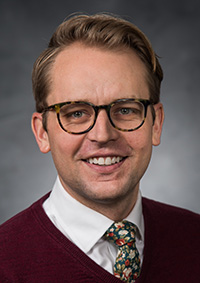 Paul B. Frandsen
Paul B. Frandsen
Brigham Young University
I am an Assistant Professor at Brigham Young University in the Department of Plant and Wildlife Sciences. I earned my Ph.D. in the Department of Entomology at Rutgers University. Prior to my current position at BYU, I co-founded the Data Science Lab at the Smithsonian Institution, where I worked as a Data Scientist and remain a Research Associate.
My research is focused on the systematics and evolution of caddisflies with a special interest in the evolution and development of their underwater silks. To approach these questions, I use a variety of tools, including genomics, transcriptomics, proteomics, and phenotypic measurements. I am also interested in the development of bioinformatics tools and am one of the developers of the phylogenetic modeling software PartitionFinder.
I have been a member of the Systematics, Evolution, and Biodiversity Section of the Entomological Society of America since I started graduate school and am eager to contribute back to the Society through service as a member of the Publications Council. I am a strong supporter of Society journals. If elected onto the Publications Council, I would advocate for continued publication and wide dissemination of top-notch entomological research, with a special focus on encouraging the publication of impactful and open research papers.
International Branch Elections
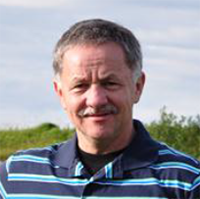 Johnnie Van den Berg
Johnnie Van den Berg
Unit for Environmental Sciences and Management, Faculty of Natural Sciences, North-West University, South Africa
Dr. Johnnie van den Berg is an entomologist and the manager of the IPM program at the North-West University in South Africa. The aims of this program, which he established, are to do research that benefits African farmers, to develop capacity in the field of pest management research, and to address development and use of novel pest management technologies within African cropping systems.
His research career started in 1987, and his focus since then has been on corn and grain sorghum entomology. With the advent of GM crops and the potential thereof as a component of IPM systems, he initiated research into this field in African farming systems. He is also closely involved in research projects on pest habitat management in eastern and southern Africa, notably in collaboration with the institutions in Kenya, Mozambique, Tanzania, and Malawi.
He has supervised and co-supervised 25 Ph.D. and 37 M.Sc. degree studies since 2004 and has authored 170 peer-reviewed scientific papers. His graduate students are from Botswana, Ethiopia, South Africa, Senegal, Togo, Kenya, and Mozambique. He is a member of the Entomological Society of America.
- Ayyasamy Regupathy, Annmalai University
- Lieceng Zhu, Fayetteville State University
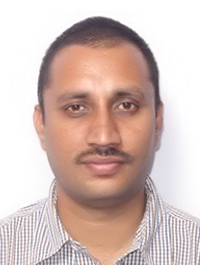 Ayyasamy Regupathy
Ayyasamy Regupathy
Annmalai University
Dr. Ayyasamy Regupathy, native of India, earned a B.Sc. in agriculture (1994) from Maharashtra, India; an M.S. (1997) in agricultural entomology from Annamalai University, Tamil Nadu, India; and a Ph.D. (2001) in agricultural entomology from Tamil Nadu Agricultural University, Coimbatore. Ayyasamy joined Syngenta India Ltd in Coimbatore as a research biologist and later moved to Tamil Nadu Agricultural University in Coimbatore and served as a research fellow (2004-2005). In 2005, Ayyasamy began his current position at Annamalai University, India, in the Department of Entomology as assistant professor. His research focuses on evaluating new insecticide molecules in various crops for data generation to enable product registration and crop label extension for the agrochemical industry.
Dr. Ayyasamy is a leader in insecticide toxicology research, teaching, and service, with an exemplary record of scientific research and publication. The book A Guide on Crop Pests, co-authored by Ayyasamy, is widely referred to by students in state agricultural universities; the Department of Agriculture, Tamil Nadu; and by the agrochemical industry. He has authored or co-authored 20 refereed publications, co-organized symposia, and has presented papers. He is active internationally by attending conferences in Bhutan, Thailand, and the United States. He received the best research paper award in "National Seminar on Current Trends in Biotechnological strategies for Eco-Friendly Crop Protection" (2011) and best oral presentation in "IV National Symposium on plant protection in horticultural crops: Emerging challenges and sustainable pest management" (2012). He has been active in entomology professional societies for the last 15 years.
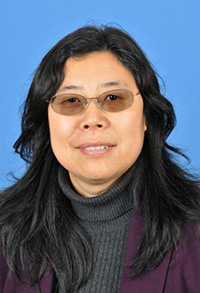 Lieceng Zhu
Lieceng Zhu
Fayetteville State University
Dr. Lieceng Zhu is a Professor in the Department of Biological Sciences at Fayetteville State University. She holds a Ph.D. degree in entomology from Kansas State University and two Master's degrees in plant science and agronomy from South Dakota State University and Northwest Sci-Tech University of Agriculture and Forestry in China, respectively. She is a long-term member of Entomological Society of America and an external reviewer for eight journals including the Journal of Economic Entomology, Arthropod-Plant Interactions, Environmental Entomology, Scientific Reports, Journal of Insect Science, etc. Dr. Zhu has twice served as a panelist for USDA-NIFA's "Pest and Beneficial Species in Agricultural Production Systems" panel in recent years.
Dr. Zhu's research focuses on the molecular impact of heat stress on plant resistance to insects using the wheat and Hessian fly interaction system as a model. Currently she is the principle investigator of an NSF-funded grant "Mechanisms of heat-induced loss of host-plant resistance to insects." As a faculty in a teaching-intensive and minority-serving university, Dr. Zhu's research also focuses on promoting student success. She has engaged 30 students in research and scholarship since 2009.
Dr. Zhu has served as an Interim Chair and Assistant Chair of the Department of Biological Sciences and Chairs of a number of committees. In her leadership roles, Dr. Zhu has dedicated herself to the success of students and the department, practiced transparency, and promoted shared governance among faculty.
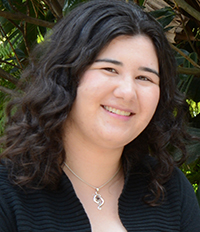 Isobel Ronai
Isobel Ronai
Columbia University
Dr. Isobel Ronai is currently a Postdoctoral Research Fellow at Columbia University and studies the genetics of ticks. She was born in Australia and completed in 2017 her award-winning Ph.D. on the genetic and mechanistic basis of worker sterility in the honey bee at the University of Sydney, Australia. Isobel's main research interest is in unravelling the genetic and mechanistic basis of important phenotypic traits of arthropods.
The impact of Isobel's Ph.D. research has been recognised with three Entomological Society of America student awards: 2017 John Henry Comstock Graduate Student Award (International Branch); 2017 Lillian and Alex Feir Graduate Student Award in insect physiology, biochemistry, or molecular biology; and 2016 Graduate Student Award (International Branch). She has also been awarded the Jabez King Heydon Memorial Prize by the University of Sydney for the most meritorious biological sciences Ph.D. thesis of 2017 and the 2016 Phil Carne Prize by the Australian Entomological Society. In addition, Isobel has been awarded over 30 competitive research and travel grants during the past five years.
Isobel has been actively involved in ESA since 2016, when the Society supported her attendance at the XXV International Congress of Entomology. She has helped organise two virtual symposium sessions for the International Branch meetings and two program symposiums for the national meetings. Isobel served as the inaugural International Branch representative on the Early Career Professionals Committee of ESA (2016–2018). For the past year Isobel has been unofficially serving as the Early Career Professional officer for the International Branch.
Pacific Branch Elections
 Jennifer A. Henke
Jennifer A. Henke
Coachella Valley Mosquito and Vector Control District
Jennifer A. Henke is the Past President of the Pacific Branch. She is the Laboratory Manager at the Coachella Valley Mosquito and Vector Control District. She has a Bachelor's of Science in biology from the University of Alabama and a Master's of Science in entomology from the University of Georgia. Jennifer began at the District in 2011 as the Environmental Biologist. Since 2015 she has managed the laboratory group, which conducts adult mosquito surveillance, tests for arboviruses, examines pesticide product efficacy, and evaluates control products and strategies targeted at mosquitoes and fire ants. Her work includes collaborating with researchers from universities and government agencies to explore novel control strategies for vectors in the desert.
Besides organizing the 2019 Pacific Branch Annual Meeting in her role as President, Jennifer currently serves on the Linnaean Games Committee and served as the moderator of the competition at the 2016 and 2017 annual meetings. She has chaired the Regulatory Affairs Committee of the Mosquito and Vector Control Association of California since 2017. She is a member of the American Mosquito Control Association's Science and Technology Committee, where she organizes the Poster Judging Competition (2018-present). Outside of work, Jennifer is likely to be found taking pictures, travelling to new places, or watching live music in southern California.
Southeastern Branch Elections
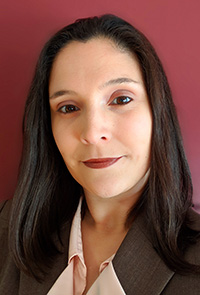 Karla Addesso
Karla Addesso
Tennessee State University
Dr. Karla Addesso received her Ph.D. from the University of Florida in December 2007. She completed postdoctoral work in the Chemistry Unit of the USDA-ARS Center for Medical, Agricultural, and Veterinary Entomology. She was awarded the Henry and Sylvia Richardson Postdoctoral Award by the Entomological Society of America in 2009.
In 2012, Dr. Addesso joined Tennessee State University as an Assistant Professor in ornamental entomology. Her research focuses on management of woody ornamental pests including wood borers, ambrosia beetles, mites, scales, and regulatory pests including imported fire ants and Japanese beetle. In 2014, Dr. Addesso was awarded the College of Agriculture Young Researcher Award for her program initiation. Since joining TSU, she has advised 11 graduate students and published several dozen peer-reviewed, extension, and trade papers. She was promoted to the rank of Associate Professor in August 2018.
Dr. Addesso participates in the Ambrosia Beetle Working Group, the Wood Borer Working Group, and the NCERA224 Multistate Project and has served on several USDA and foundation grant panels. She has served ESA as a judge for student competitions and for the Monsanto Graduate Student Travel Grant panel, and last year she stepped in as the SEB Representative to the Governing Board. She is a judge for the Sydney B. Meadows Scholarship Endowment Fund. She is active in the Tennessee Entomological Society, previously serving as Member-at-Large and Editor, and is currently President-Elect. Dr. Addesso is an Associate Editor of Environmental Entomology and serves as a reviewer for other ESA and topical journals.
